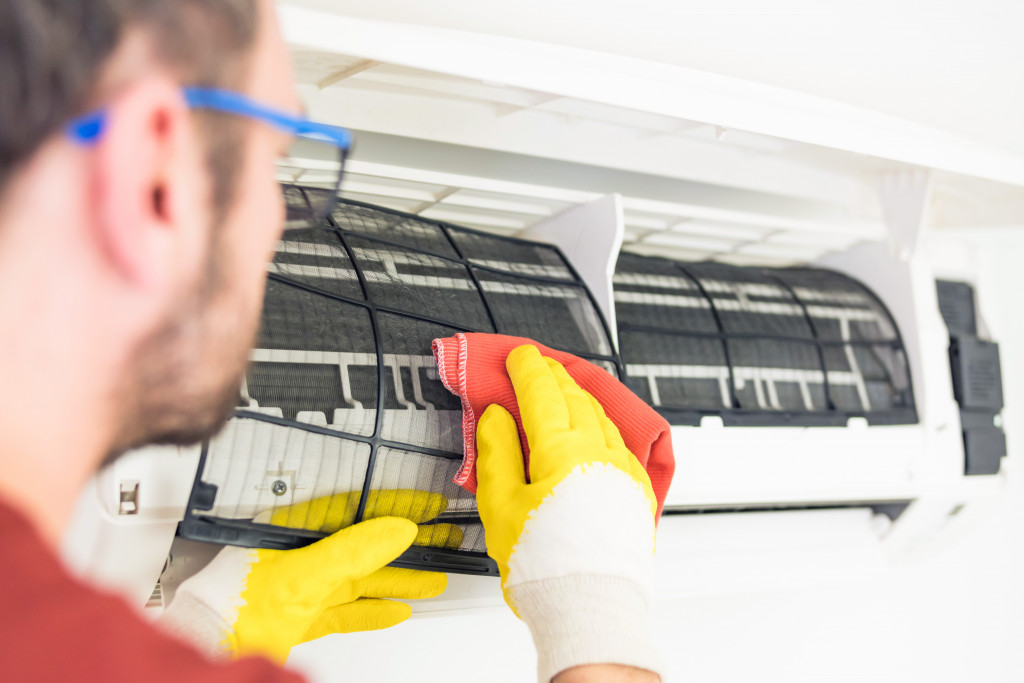- Poor office insulation can decrease productivity, worsen air quality, increase energy bills, and negatively impact employee morale.
- The ideal working temperature range for employees is 22-24 degrees Celsius with stable indoor conditions.
- Improved insulation can enhance indoor air quality by preventing the entry of pollutants, thus lowering the likelihood of employee illnesses.
- Regular HVAC maintenance and repairing damaged insulation can help reduce energy consumption and maintain a comfortable office environment.
- Installing acoustic insulation can significantly reduce noise stress, creating a calmer, more conducive workspace.
The insulation in your office space may not be something you think about often, but your office’s productivity may be affected. You may not have realized it, but poor insulation could be causing employees to feel less comfortable, lower morale, and potentially cost you energy costs. Here’s what you need to know about poor insulation, how it can affect your office productivity, and how to deal with it.
Ideal Temperature For Employees
It’s been found that 22-24 degrees Celsius is ideal for employees to work comfortably. Anything outside of this range can cause decreased productivity and morale. If your office is too hot or cold, it could indicate that your insulation isn’t doing its job properly. Poor insulation may also lead to consistent fluctuations in the temperature throughout the day, making it difficult for employees to find their optimal working temperature. Here’s a look into how poor insulation can affect your office productivity.
Uncomfortable Employees
If the insulation in your office isn’t up to par, it can make the temperature in your office fluctuate, making it challenging to keep your employees comfortable. If the temperature is too hot or cold, employees may find it harder to focus on their work and be less productive. They may constantly adjust to maintain their comfort level, which can be distracting.

Air Quality Problems
Indoor air quality is usually more polluted than outdoor air quality. However, if proper insulation is installed, it can help improve air quality by preventing the entry of pollutants, allergens, and other contaminants into your office building. Conversely, poor insulation can allow humidity and air pollutants to enter the premises and cause respiratory illnesses. This can lower productivity as employees will be more likely to take sick days.
Increased Energy Bills
If your insulation isn’t installed correctly, it can cause air leaks and create drafts, increasing energy bills. If the temperature is too hot or cold, your HVAC system may work harder than necessary to keep your employees comfortable. This can lead to higher energy bills, cutting your profits and ultimately affecting your bottom line.
Unwanted Noise
In an open office space, noise can be a significant issue. Poor insulation can lead to unwanted noise, increasing employee stress levels and making concentrating difficult. This can result in a negative impact on productivity.
Negatively Affects Morale
Employees feeling uncomfortable, stressed, or anxious in an office environment can affect their morale. A workspace with poor insulation can make employees feel undervalued and unsupported, leading to higher turnover rates eventually negatively affecting productivity.
Ways to Improve Office Insulation
There are various ways you can improve your office’s insulation. Here are four steps you need to take:

Drone Inspection
A drone must check the roof of your office for various leaks. A reliable drone roof leak inspection service can help you detect issues with your office’s insulation and ensure it is in tip-top shape. It can also help you identify whether any repairs are necessary.
Repair Damaged Insulation
After inspecting your roof, if there are any damaged parts, these should be repaired as soon as possible – this could involve replacing insulation or installing a vapor barrier. This will help prevent air leakage and drafts and ensure the temperature in your office remains constant.
Install Acoustic Insulation
Installing acoustic insulation will help to reduce unwanted noise and create a calmer, more comfortable environment. It can also improve energy efficiency by preventing sound waves from entering the building.
HVAC Maintenance
Regular maintenance on your HVAC system helps ensure it runs efficiently and doesn’t consume too much energy. This can help reduce your energy bills and keep your employees comfortable.
Poor insulation in your office building can significantly impact not just office productivity but also the health and morale of your employees. By monitoring the quality of your office’s insulation and taking active measures to improve it, you can ensure a comfortable, healthy, and productive working environment. Investing in ensuring optimal insulation is not just about reducing energy bills or maintaining a comfortable temperature but also about showing your employees that you value their well-being and are willing to take steps to improve their workspace. Remember, a comfortable and happy employee is a productive employee.